One of the most common questions our team at ResumeSpice hears from candidates is “should I include an objective statement on my resume?“
The short answer is no. Reason being, there’s little upside to doing so, but significant downside. An objective statement can work against a job seeker if their objective doesn’t match up perfectly with what an employer is looking for in a candidate. Our goal is for an employer to evaluate a candidate’s fit for a role based on the entirety of their resume and qualifications, rather than on one statement at the top of the document. It’s easier than ever to submit a resume, so hiring managers will see hundreds, sometimes thousands of resumes for a single role. They are looking for any reason to screen out a candidate – an objective statement that doesn’t perfectly match the role and the company is one easy way to screen a candidate out.
Secondly, an objective statement is written from the perspective of the candidate, which (we’re sad to report) isn’t the same perspective that a hiring manager or HR professional brings to the resume. From their end, it’s all about what you as the candidate can do for the company, not what they can do for you. The fact that you’re “seeking a marketing role at a fast-growing company” may be important to you, but filling the role with someone whose background and skills fit the position is what’s most important to them.
Are there ways to create visual impact at the top of a resume, without including an objective statement? Absolutely. Let us review your resume and we’ll give you some thoughts on how to do so.
Need more help creating a strong resume – and finding a new job? Call ResumeSpice. As one of the country's leading professional resume writing services, we can help you produce a winning resume. Contact us today to learn more at 832.930.7378.






